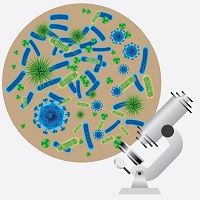Article
FMT Is Not a Cure-All
Author(s):
Key Takeaways
- Fecal microbiota transplants effectively prevent recurrent C. difficile infections in IBD patients but do not improve IBD symptoms.
- Over half of the patients required escalation of IBD treatment post-FMT, including glucocorticoids and anti-TNF therapy.
While effective for Clostridium difficile (C. difficile) infection in irritable bowel syndrome (IBS) patients, fecal microbiota transplants did not relieve the IBS itself.

While fecal microbiota transplants are effective for Clostridium difficile (C. difficile) infection in inflammatory bowel disease (IBD) patients, the treatment did not have a beneficial effect on the IBD itself, according to new findings.
Researchers from Harvard Medical School wrote that patients with IBD are at a particularly high risk for developing recurrent C. difficile infection, though little was previously known about the safety of the fecal microbiota transplant process in the population. So, they prospectively studied IBS patients who underwent fecal microbiota transplants for their recurrent C. difficile infection. The researchers described “recurrent” as having at least two C. difficile episodes at Massachusetts General Hospital. The 35 patients were between 8 and 93 years; 22 patients had ulcerative colitis (UC) and 13 patients had Crohn’s disease (CD).
The patients undergoing the transplant received follow up phone calls between one and three days post transplant, two weeks, eight weeks, and six months so the investigators could collect data. They asked for information about potential side effects and recurrence of symptoms, such as abdominal pain and the frequency and consistency of bowel movements.
The researchers also gathered patient data from their medical records, including baseline and follow up information about demographics, medications, disease related surgery, and microbiology data. Additionally, the team assessed the rates of C. difficile infection at two months and irritable bowel syndrome treatment escalation — which they defined as changes to medications and surgery.
Fecal microbiota transplants were most commonly carried out via oral capsule, in three quarters of patients, while five patients had previously undergone fecal microbiota transplant. At the time of their procedure, 28 patients were on IBS medications, including eight on glucocorticoids (10-20 mg prednisone).
All of the patients tolerated fecal microbiota transplants well. And of the 13 patients that underwent C. difficile testing within two months of their procedure, just one tested positive.
Half of the patients (19 participants) required escalation of their irritable bowel syndrome treatment after the fecal microbiota transplant: glucocorticoids (in five patients), anti TNF therapy (in seven patients) and vedolizumab therapy (in three patients). Two patients required surgery, such as diverting ileostomy and total proctolectomy.
Two patients without a history of perianal disease were diagnosed with perianal abscess or fistula within 64 and 85 days after the fecal microbiota transplant, which the researchers described as an “interesting” finding. One patient with a history of perianal disease developed perianal abscess 47 days after their fecal microbiota transplant.
In general, the researchers observed, patients without symptoms of active irritable bowel syndrome at the time of their fecal microbiota transplant procedure (22 patients) did not require escalation of their treatments.
“Although fecal microbiota transplant appeared to be safe and effective for irritable bowel syndrome patients with recurrent C. difficile infection, more than half of patients in our study required irritable bowel syndrome treatment escalation shortly after fecal microbiota transplant,” the study authors concluded. “Although fecal microbiota transplant is highly effective in preventing recurrent C. difficile infection, recent data in irritable bowel syndrome, where dysbiosis has been widely reported, have demonstrated significantly lower efficacy. Nevertheless, among irritable bowel syndrome patients, fecal microbiota transplant may be a promising therapeutic option by remedying dysbiosis partially induced by C. difficile infection. Despite this compelling rationale, we did not observe a consistent improvement in disease activity following fecal microbiota transplant among irritable bowel syndrome patients with recurrent C. difficile infection.”
The study, “Fecal Microbiota Transplantation for Recurrent Clostridium difficile Infection in Patients with Inflammatory Bowel Disease,” was published in the journal Clinical Gastroenterology and Hepatology.
Related Coverage:
Fecal Transplants Considered as Effective as Antibiotic Treatment for C. difficile Infections
Hospital Laundry Group Disputes C. difficile Danger
California Hospital Staff Concerned about Facility’s C. difficile Risk





